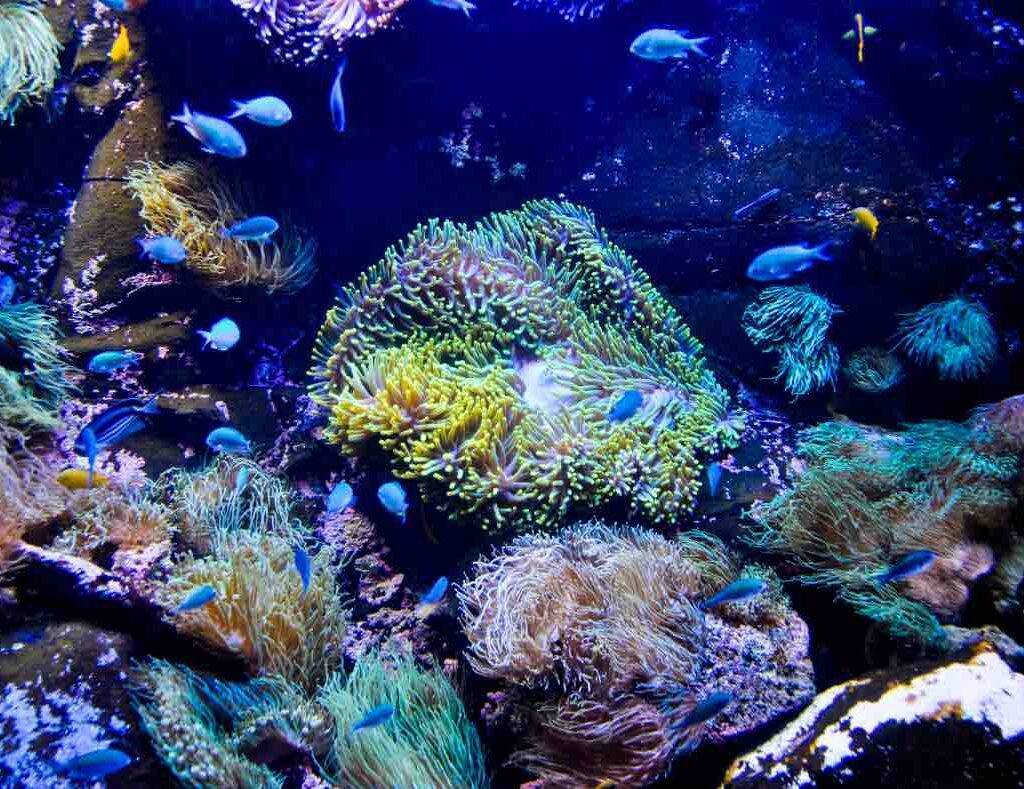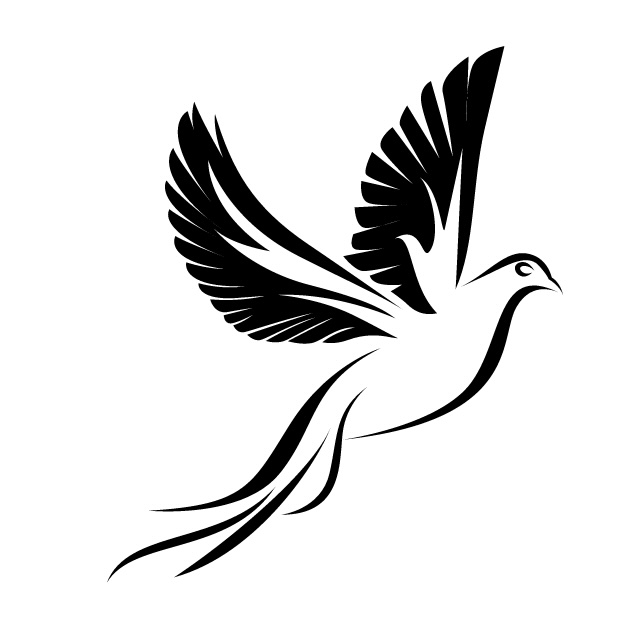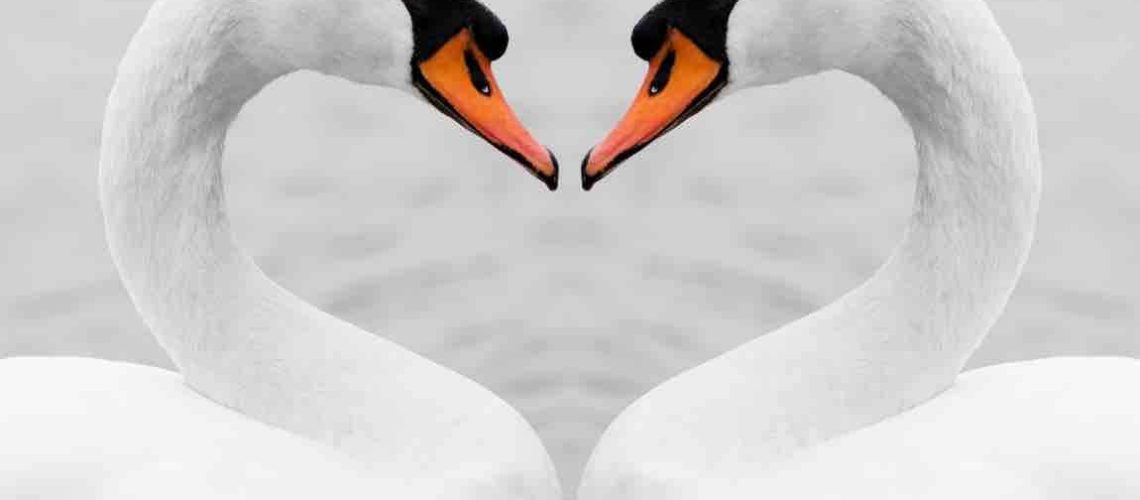Table of Contents
- Introduction
- 1. The Biological Perspective
- 2. Philosophical Approaches
- 3. Religious and Spiritual Perspectives
- 4. The Impact of Science and Technology
- 5. Personal Growth and Self-Actualization
- 6. The Role of Art and Creativity
- 7. The Pursuit of Happiness
- Conclusion
Introduction
Since time immemorial, humans have been plagued by the age-old question of the meaning of life, tirelessly searching for answers to the riddles that lie at the core of our existence. It’s as if we are attempting to find the missing piece to an intricate puzzle or unlock a hidden treasure chest of wisdom. This quest for the true meaning of life is a central theme in various domains, from philosophy to religion and from art to science.
The pursuit of understanding the meaning of life is akin to opening Pandora’s box, as it unfolds a myriad of different perspectives and approaches that have been used to answer this question. Like a kaleidoscope, each individual’s journey to discover the true meaning of life offers a unique combination of colors, patterns, and reflections. As the ancient Greek philosopher Socrates famously said, “The unexamined life is not worth living,” emphasizing the importance of self-reflection and exploration in our search for purpose and direction.
In this article, we will delve into the rich tapestry of ideas and beliefs that have been woven by philosophers, theologians, scientists, artists, and countless individuals throughout history. We will navigate through the labyrinth of the human experience, guided by the wisdom of academicians and experts, and illuminated by thought-provoking idioms, proverbs, and examples. Our journey will take us through various facets of human existence, such as the biological perspective, philosophical approaches, religious and spiritual viewpoints, the role of relationships, personal growth, the impact of science and technology, the role of art and creativity, and the pursuit of happiness.
It is often said that “beauty lies in the eyes of the beholder,” and the true meaning of life can be similarly subjective. What brings purpose and fulfillment to one person may not hold the same significance for another. By examining the diverse paths that people have taken in their quest for meaning, we hope to provide a broader understanding of our shared human experience and a deeper appreciation of the complexity of the question itself.
Ultimately, the importance of exploring our purpose and future cannot be overstated. As the wise Chinese proverb goes, “The journey of a thousand miles begins with a single step.” In our pursuit of the true meaning of life, we take these steps together, seeking to unveil the secrets of our existence and chart a course for our collective future.
1. The Biological Perspective

From the dawn of humanity, we have been captivated by the intricate dance of life, attempting to unravel the mysteries that lie at the heart of our existence. In the realm of biology, researchers and academicians have explored the fundamental principles that govern our world, seeking to illuminate the complex interplay between evolution, natural selection, reproduction, survival, instincts, and desires.
Charles Darwin, the father of evolutionary theory, once said, “It is not the strongest of the species that survives, nor the most intelligent; it is the one most responsive to change.” This statement encapsulates the essence of evolution and natural selection, where species continually adapt to their environment to ensure their survival. Like a sculptor chiseling away at a block of marble, the forces of nature meticulously shape and mold life over time, refining and perfecting the delicate balance of existence.
At the core of this process lies the driving force of reproduction and the survival of the species. As the ancient proverb goes, “The fruit never falls far from the tree,” highlighting the continuity and interconnectedness of life through the generations. The intricate web of life ensures that each organism, from the smallest microbe to the largest mammal, plays a vital role in maintaining the harmony of the ecosystem. In this symphony of life, every note is essential, and each melody contributes to the overall harmony.
It is said that “the heart wants what it wants,” a sentiment that captures the role of instincts and desires from the biological perspective. Renowned experts like Sigmund Freud and Carl Jung explored the depths of the human psyche, revealing the hidden motivations and instincts that drive our behavior. Our instincts, such as the desire for food, shelter, and companionship, are the compass that guides us through life’s labyrinth, ensuring our survival and well-being.
In conclusion, the biological perspective offers a rich tapestry of insights into the true meaning of life. By examining the intricate interplay between evolution, natural selection, reproduction, survival, instincts, and desires, we gain a deeper appreciation of the beauty and complexity of our world. As the ancient Greek philosopher Heraclitus once said, “No man ever steps in the same river twice, for it’s not the same river, and he’s not the same man.” In the ever-changing river of life, the biological perspective provides a crucial foundation for understanding our place in the grand tapestry of existence.
2. Philosophical Approaches

Throughout history, philosophers have grappled with the enigmatic question of life’s meaning, seeking to shed light on the human condition and our place in the world. In the words of the great philosopher Friedrich Nietzsche, “He who has a ‘why’ to live can bear almost any ‘how.'” This quest for understanding has led to the development of various philosophical approaches, including existentialism, hedonism, and virtue ethics.
Existentialism, a philosophy often associated with Jean-Paul Sartre and Albert Camus, emphasizes the importance of personal freedom and responsibility in shaping one’s own meaning and purpose. As the saying goes, “You are the captain of your own ship,” emphasizing the central role of individual choice in navigating the unpredictable seas of life. Existentialism encourages us to confront the fundamental questions of existence and to embrace the inherent uncertainty and absurdity of life, ultimately empowering us to create our own unique path.
On the other hand, hedonism, a philosophy championed by thinkers like Epicurus, focuses on the pursuit of pleasure as the primary goal in life. As the age-old adage goes, “Eat, drink, and be merry, for tomorrow we die,” encapsulating the hedonistic principle of maximizing happiness and minimizing suffering. However, it is essential to note that Epicurean hedonism advocates for a more balanced and moderate approach to pleasure, emphasizing the importance of intellectual and emotional well-being alongside physical gratification.
Lastly, virtue ethics, a philosophical approach with roots in the teachings of Aristotle and Confucius, emphasizes the importance of living a morally good life and cultivating virtues such as wisdom, courage, and compassion. As the Chinese proverb states, “A journey of a thousand miles begins with a single step,” reminding us that the path to moral excellence is a lifelong endeavor, requiring continuous self-improvement and reflection.
In conclusion, the various philosophical approaches to the meaning of life offer invaluable insights into our quest for understanding and fulfillment. Existentialism encourages us to embrace our freedom and responsibility, hedonism reminds us of the importance of pleasure and happiness, and virtue ethics provides a moral compass to guide us on our journey. As we navigate the complex tapestry of life, these philosophies serve as beacons of light, illuminating our path and enriching our understanding of the human experience.
3. Religious and Spiritual Perspectives

Religion and spirituality have been a guiding light for many people looking for answers to life’s most important questions throughout human history. From the ancient teachings of the Vedas to the sacred texts of the Bible, religious and spiritual views give us different ideas about what life is all about and why we are here.
At the heart of many religious beliefs lies the concept of a higher power or deity, which is often seen as the source of life and the ultimate purpose of our existence. The Bible states, “In the beginning, God created the heavens and the earth” (Genesis 1:1), emphasizing the divine origin of life and the importance of our connection to the Creator. As the saying goes, “Man does not live by bread alone,” reminding us of the significance of nurturing our spiritual well-being alongside our physical needs.
In Eastern philosophies and religions, such as Hinduism and Buddhism, the concepts of reincarnation and karma play a pivotal role in shaping the understanding of life’s meaning. According to this belief system, our actions in this life will determine our future incarnations, as summed up in the proverb, “As you sow, so shall you reap.” This view of life as a cycle encourages people to try to improve their morals and ethics because their actions will eventually affect their future lives and the well-being of all people.
Spiritual enlightenment is a central idea in many religious and spiritual traditions. Learning more about yourself and finding inner peace can be transformative. As the renowned Christian mystic St. Augustine once said, “Our hearts are restless until they find their rest in Thee,” expressing the deep longing for communion with the divine that lies at the core of the human experience. In the same way, the Buddhist idea of Nirvana is the ultimate goal of breaking out of the cycle of birth, death, and rebirth. This leads to a state of the highest spiritual awakening.
In conclusion, religious and spiritual views give us a lot of information about what life is all about. They stress how important it is that we are connected to the divine, that our actions have moral consequences, and that spiritual enlightenment can change us. By using the wisdom of these traditions, we can learn more about what it means to be human and make our journey to self-discovery and inner peace more fulfilling.
4. The Impact of Science and Technology

In the world, we live in now, where things change quickly, science and technology significantly affect how we see the meaning of life. In fact, the relentless pursuit of knowledge and new ideas can deepen our understanding of the universe and change how we live. As the famous physicist Albert Einstein once said, “The most beautiful thing we can experience is the mysterious.” “It is the source of all true art and science.”
The rapid pace of scientific progress has pushed people into a new age of exploration and discovery. As the saying goes, “Necessity is the mother of invention,” and our myriad challenges have driven us to push the boundaries of what is possible, unlocking previously unimaginable technological marvels. From figuring out the secrets of our genetic code to exploring the farthest reaches of the universe, our thirst for knowledge keeps changing what we know about life and where we fit in it.
The rise of transhumanism and artificial intelligence is one of the most exciting and controversial things to happen in the past few years. This movement, which wants to improve human abilities with the help of new technologies, raises important questions about what it means to be human and what might happen if man and machine become one. As the philosopher Alan Turing once pondered, “Can machines think?—a question that continues to fuel heated debate as we venture ever closer to creating truly sentient artificial beings.
As we hurtle headlong into this brave new world, the ethical considerations of a technologically-driven future take center stage. The ancient Greek philosopher Plato warned, “The measure of a man is what he does with power,” and as our technological prowess grows exponentially, so too must our commitment to using these advancements responsibly and ethically. Finding the right balance between using technology to make the world a better place and avoiding the dangers of unchecked progress will be key to shaping our future as a whole.
In conclusion, the way science and technology have changed how we see the meaning of life is both amazing and scary. As we continue to figure out the secrets of the universe and push the limits of what humans can do, we must also deal with the moral and legal issues that come with having so much power. In this pursuit, we are reminded of the timeless words of the poet John Keats: “A thing of beauty is a joy forever—a sentiment that captures the wonder and responsibility inherent in our quest for knowledge and progress.
5. Personal Growth and Self-Actualization

The journey to uncover life’s meaning is deeply intertwined with the process of personal growth and self-actualization. As the renowned psychologist Carl Rogers once said, “The good life is a process, not a state of being.” “It is a direction, not a destination.” This sentiment underscores the importance of continuous self-improvement, self-discovery, and the pursuit of our passions and goals.
In seeking personal growth, the pursuit of individual passions and aspirations plays a vital role in imbuing our lives with a sense of purpose and fulfillment. As the saying goes, “Do what you love, and you’ll never work a day in your life.” By embracing our unique talents and interests, we tap into the wellspring of motivation and enthusiasm that fuels our journey towards self-actualization.
Integral to this process is the development of a sense of self and identity. As the ancient Greek aphorism “Know thyself” advises, understanding our own values, beliefs, and desires is fundamental to leading a meaningful and authentic life. Through this process of self-discovery, we forge our own path, akin to a sculptor who shapes a masterpiece from a raw block of marble, gradually revealing the exquisite form within.
In this pursuit of personal growth, the importance of self-reflection and learning cannot be overstated. As the wise philosopher Socrates once declared, “An unexamined life is not worth living.” To grow and evolve, we must continually assess our experiences and choices, extracting valuable lessons and insights that propel us forward on our journey. Like the mythical phoenix that rises from the ashes, each challenge and setback offers an opportunity for rebirth and transformation.
In conclusion, personal growth and self-actualization are cornerstones of our quest for life’s meaning. By pursuing our passions, developing a sense of self, and engaging in self-reflection and learning, we forge a path toward a more meaningful, fulfilling existence. As the poet Robert Frost so eloquently expressed in his iconic poem “The Road Not Taken,” the choices we make, and the paths we forge ultimately shape the tapestry of our lives, imbuing our journey with purpose and significance.
6. The Role of Art and Creativity

Throughout human history, art and creativity have served as powerful tools for self-expression, communication, and the exploration of life’s meaning. As the renowned artist Pablo Picasso once said, “Art washes away from the soul the dust of everyday life,” illustrating the transformative potential of creative expression to uplift and inspire both individuals and society.
One of the most vital aspects of art lies in its ability to facilitate self-expression and communication. As the old adage goes, “A picture is worth a thousand words,” and indeed, through the language of art, we can convey complex emotions, ideas, and experiences that transcend the limitations of spoken or written language. By tapping into our creative potential, we unlock a boundless wellspring of self-discovery and connection with others, forging a deeper understanding of ourselves and the world around us.
The emotional impact of art on individuals and society is profound, as it has the power to move, inspire, and challenge us in ways that few other mediums can. As the famous poet Maya Angelou once said, “I’ve learned that people will forget what you said, people will forget what you did, but people will never forget how you made them feel.” Art has the unique capacity to evoke a wide range of emotions, from joy and wonder to sorrow and despair, thereby fostering empathy and compassion within ourselves and across cultures and generations.
Furthermore, art possesses the extraordinary ability to provide meaning and purpose in our lives. As the great Russian novelist Fyodor Dostoevsky observed, “Beauty will save the world.” By engaging with and creating art, we embark on a journey of self-exploration and growth, uncovering deeper layers of our identity and the human experience. In doing so, we imbue our lives with a sense of purpose and fulfillment that transcends the mundane and ephemeral.
In conclusion, art and creativity play an indispensable role in our quest for life’s meaning. Through self-expression, communication, and the emotional impact of art, we forge connections with ourselves and others, cultivating a richer, more profound understanding of the world around us. As we navigate the complexities of existence, art serves as a beacon of hope and inspiration, illuminating the path towards a more meaningful and purposeful life.
7. The Pursuit of Happiness

The pursuit of happiness has long been a central theme in humanity’s quest for life’s meaning. As the ancient philosopher Aristotle once said, “Happiness is the meaning and the purpose of life, the whole aim and end of human existence.” Indeed, the connection between happiness and life satisfaction is a cornerstone of our search for a meaningful and fulfilling existence.
In recent years, the field of positive psychology has emerged as a powerful force in our understanding of happiness and well-being. As the founder of positive psychology, Martin Seligman, explained, “The good life is using your signature strengths every day to produce authentic happiness and abundant gratification.” By focusing on the cultivation of our strengths and virtues, we can enhance our overall well-being and lead a more meaningful life.
There are several strategies for cultivating happiness and contentment, each offering unique insights into the art of living a fulfilling life. One such approach is the practice of mindfulness, which encourages us to be fully present in each moment, embracing the beauty and wonder of life as it unfolds. As the saying goes, “Yesterday is history, tomorrow is a mystery, today is a gift, which is why we call it the present.”
Another powerful strategy for fostering happiness is the cultivation of gratitude. As the old proverb reminds us, “It is not happy people who are thankful; it is thankful people who are happy.” By expressing gratitude for the blessings in our lives, we shift our focus from what we lack to what we have, fostering a sense of contentment and joy that enriches our daily existence.
Finally, the importance of social connections and relationships in the pursuit of happiness cannot be understated. As the famous psychologist John Bowlby noted, “Life is best organized as a series of daring ventures from a secure base.” By cultivating strong, supportive relationships, we create a foundation of love and connection that empowers us to navigate life’s challenges with courage and resilience.
In conclusion, the pursuit of happiness is an integral part of our quest for life’s meaning. By embracing strategies such as mindfulness, gratitude, and nurturing relationships, we can enhance our well-being and foster a sense of deep contentment and fulfillment. As we journey through life’s rich tapestry, the pursuit of happiness serves as a guiding star, illuminating our path towards a more meaningful and rewarding existence.
Conclusion
In conclusion, the search for life’s meaning is an enduring and deeply personal quest that has captivated the human spirit since time immemorial. As the French existentialist philosopher Jean-Paul Sartre once said, “Life has no meaning the moment you lose the illusion of being eternal.” This poignant sentiment highlights the importance of embracing the mystery and uncertainty that accompany our journey through life, as well as the rich tapestry of answers that we may encounter along the way.
One of the most profound aspects of this quest is the recognition that there is no one-size-fits-all answer to the question of life’s meaning. As the old saying goes, “Beauty is in the eye of the beholder,” and so too is the significance of our existence shaped by our unique perspectives and experiences. By embracing this multiplicity of answers, we open ourselves to the possibility of growth, transformation, and a deeper understanding of the human experience.
The importance of personal exploration and discovery in the pursuit of life’s meaning cannot be overstated. As the famed poet Rainer Maria Rilke so eloquently advised, “Be patient toward all that is unsolved in your heart and try to love the questions themselves… Do not now seek the answers, which cannot be given you because you would not be able to live them. And the point is, to live everything.” By engaging in this process of self-discovery, we empower ourselves to forge our own path and uncover the unique insights and wisdom that lie at the heart of our existence.
In the final analysis, our quest for meaning in life is an ongoing, ever-evolving journey that challenges us to grow, learn, and embrace the myriad possibilities that await us. By remaining open to the uncertainty and multiplicity of answers, and by engaging in personal exploration and discovery, we can enrich our lives with purpose and fulfillment, ultimately forging a deeper connection with ourselves, others, and the world around us. As the ancient philosopher Lao Tzu wisely observed, “A journey of a thousand miles begins with a single step” – a timeless reminder that the search for life’s meaning is a journey well worth embarking upon.

